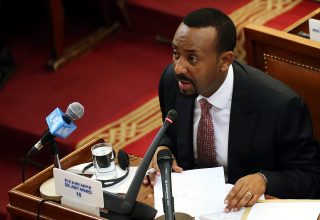After Ethiopia’s cabinet announced on Saturday that it was assessing Ethiopia’s security, and looking to lift the state of emergency it imposed in February, the country’s parliament today approved the decision.
Ethiopia’s cabinet on Saturday said it was satisfied that law and order had been restored in some parts of the country, after the two-year-long unrest in the Oromia region of the country. The latest unrest occurred after plans to expand the capital Addis Ababa into the Oromia region, where the minority Oromo people live, was uncovered.
The Ethiopian government announced a six-month nationwide state of emergency in February 2018, leading to internet shutdowns, and a slump for small businesses in the area, and exacerbating anger towards Ethiopia’s ruling coalition.
Along with internet shutdowns, there were restrictions on organizing protests, especially on university campuses, and also on making political gestures. There were also curfews, and deployment of Ethiopian military personnel to cities and towns, especially the cradle of the protests in the Oromia region of the country.
Ethiopian lawyer Awol K Allo wrote in Al-Jazeera in February that the state of emergency declarations in the country are always opportunities for the Ethiopian government to demonstrate repressive powers over Ethiopian minority ethnic groups. “An important feature of Ethiopia’s state of emergency is the intersection between emergency powers and ethnic identity, in which emergency powers are used by the ruling elites to maintain their social and ethnic privilege,” he said.
However, the resignation of former Ethiopian Prime Minister, Hailemariam Desalegn soon after the announcement of the state of emergency, the appointment of Abiy Ahmed, an Oromo indigene, to replace him as prime minister, and the termination of a three-month internet blackout have all managed to reduce tensions in Ethiopia.
Ahmed, who has been travelling around the country since his appointment, will hope that lifting the state of emergency would also assist in his bid to placate victims of Ethiopia’s repressive regime. It was always going to be a tough task for the new Ethiopian Prime Minister to unite a country that has long been divided by strained ethnic relations. However, the revocation of the state of emergency, two months before it was supposed to end, will make his job a bit easier.








